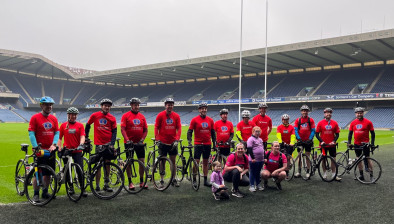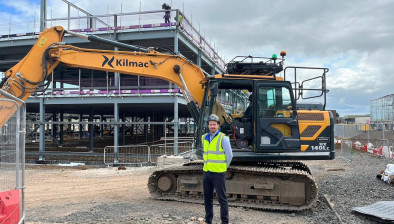Kilmac director thanks industry for taking daughter to their hearts
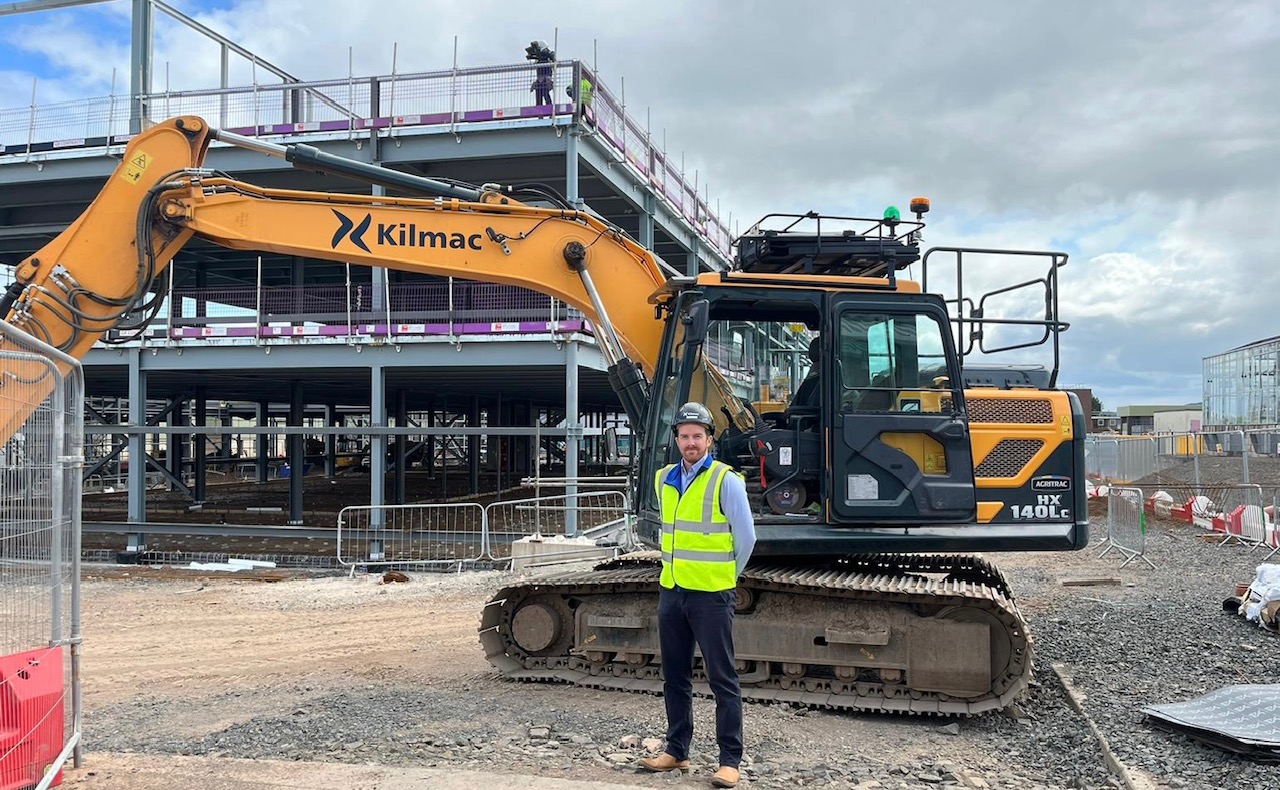
Liam Wilkie back at work on the Perth High School project after a massive £50,000-plus charity fundraiser
It was back to work on a building site for the new Perth High School this week for Liam Wilkie.
The Kilmac construction director admits he was in more familiar territory after overseeing an amazing charity challenge for the little-known Bardet-Biedl syndrome.
The cruel genetic condition is slowly depriving his eight-year-old daughter Caitlin of her sight.
Kirriemuir-based Liam and his wife Ashley, an associate director with veterinary practice Thrums, are reflecting on a remarkable fundraiser which has generated more than £50,000 to aid the BBSUK charity’s research.
Liam admits the Scottish construction industry has played a huge part in the success story.
Twenty-five businesses rallied to the cause, with Kirriemuir civil engineering firm Delson sponsoring the 12-stage event.
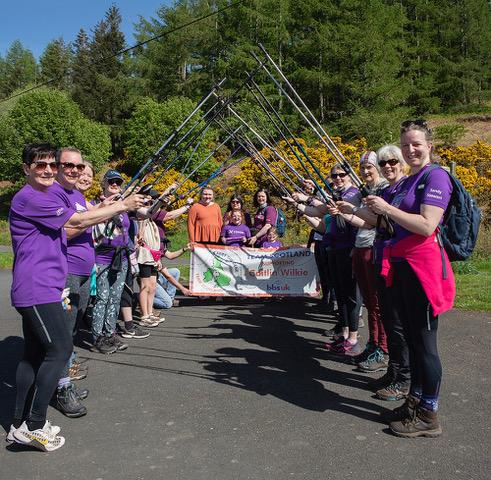
Walkers who completed the 45-mile trek from Melrose to Mooler provide a guard of honour for Caitlin. (Image credit: Lloyd Smith Photography)
More than 350 friends and Kilmac colleagues joined family members in the “Carry the Gene Challenge” from John O’Groats to the Borders. The initial target in the Wilkie’s sights had been £5000.
The final push was completed at the weekend with a 45-mile trek from Melrose to Wooler, where the baton was handed over for the English and Irish legs.
Big-hearted Kilmac directors Athole McDonald and Richard Kilcullen stunned the Wilkie family with a £15,000 contribution to take the total raised beyond £50,000.
They said it was “for a cause so close to our hearts.”
“We are looking at around £53,000 towards research and that has blown us away. No one in their wildest dreams would have thought this would be so successful,” said Liam.
“The Kilmac donation came out of the blue. I didn’t have a clue it was in the pipeline. It’s phenomenal.
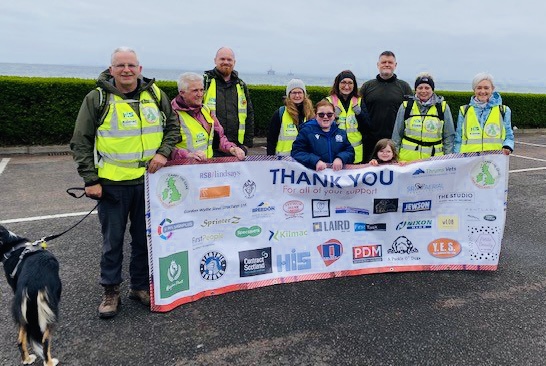
Kilmac supporters on the Fife Coastal Walk leg of the charity challenge
“We must have had around 30 staff taking part in the various legs and the company and others in the industry and beyond have been incredibly supportive since Caitlin was first diagnosed.
“The Challenge has taken over our lives for the last few weeks but it has gone way beyond our wildest dreams.
“With the different physical challenges people of all ages and fitness could take part.
“We tried to make sure Caitlin could visit as many sections as possible to thank everyone.
“At the end, walkers gave Caitlin a guard of honour, with other families impacted by BBS.
“The research into BBS is picking-up pace again after the pandemic and the team at Great Ormond Street Hospital for Children are hoping for gene therapy and human trials next year.
“The main issues with BBS sufferers are heart and kidney failure, obesity, learning difficulties and sight loss, usually by the teenage years.
“As with most things in life, progress into research hinges on finance.”
Anyone wishing to support the cause can donate here.





















